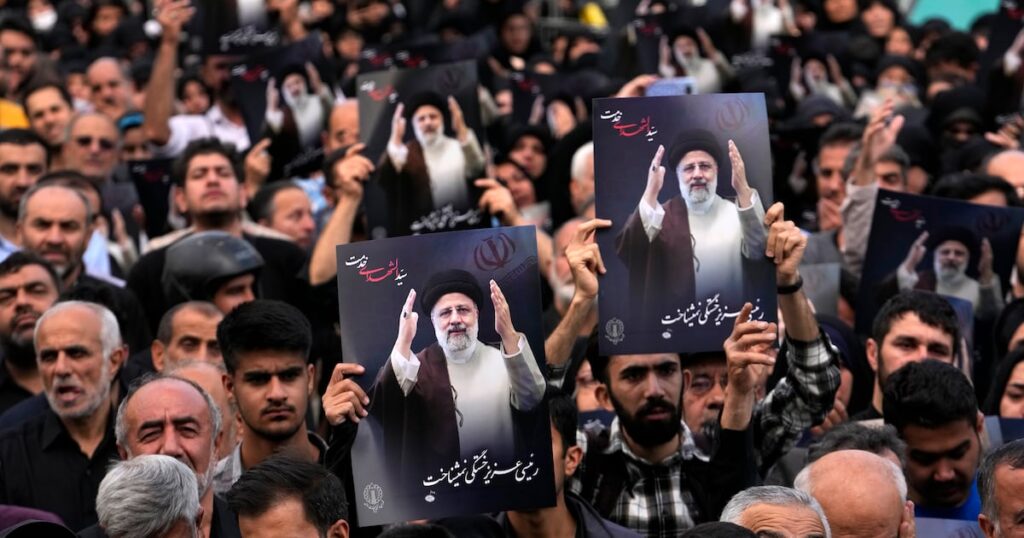The tragic helicopter crash that claimed the lives of Iran's president and other senior officials has sparked speculation about the broader implications for Iran and its political situation. The incident involved a helicopter battling inclement weather. It crashed into a mountain carrying not only Iran's president, but also the foreign minister and other key regional officials.
While the deaths of Iran's president, foreign minister, and other senior officials are unlikely to change Iran's foreign policy or its role in the Middle East, they will still create internal conflict, distract from important governance, and create political uncertainty in Iran. It will cast a shadow of sexuality. . This is a dangerous situation in a region where tensions are already high.
Few people in Iran, other than colleagues within the regime, will shed tears for the officials killed in the crash. This is likely due to Iran's history of state repression and violence against peaceful dissent. However, the Iranian regime's crisis management and the sudden absence of prominent officials could have ripple effects within Iran and across the already volatile geopolitical landscape. Although the incident seems unlikely to trigger a regime change, it is certainly sowing the seeds of growing internal discord and diverting focus from important governance.
This tragic incident not only highlights poor judgment by those responsible for carrying out the flight, but also broader systemic deficiencies in Iran's domestic flight safety procedures and personnel protection measures. The fact that locating the wreckage took more than 15 hours and required the deployment of a Turkish drone with infrared capabilities speaks to Iran's preparedness in the search and rescue operation. This ironically highlights an apparent contradiction, potentially exacerbated by decades of persistent international sanctions, against the backdrop of Iran's purported advances in drone technology. ing.
This loss, although not fatal, was a significant blow to the regime's political machine. It is important to understand that the president does not exercise ultimate authority in Iran's political hierarchy. This power rests with the supreme leader, who is not elected but is appointed indefinitely by the clerical body. But as is often the case in the Middle East, virulent conspiracy theories are likely to flourish within the regime, whatever the cause. Three helicopters were carrying officials. Two of them reached their destination, but one carrying the president and other dignitaries crashed into the mountains. Ambitious factions and individuals will do everything in their power to exploit this collapse and blame either Israel or the United States. With the election just 50 days away, these are likely to fuel speculation.
If there is one thing the Iranian regime is adamant about, it is its intention to avoid regional war. However, internal power struggles could undermine the Islamic Republic's political system unless leaders manage the situation and prevent internal wars between factions. The fact that the regime quickly announced the replacement of the foreign minister by appointing nuclear negotiator and deputy foreign minister Ali Bagheri Kani as acting foreign minister shows that the regime wants to maintain diplomatic channels. There is.
This internal power struggle could not have come at a worse time for the government, which was already in the process of choosing a successor to its top leadership. Despite attempts to portray a semblance of normalcy and a seamless transition, the upcoming national elections (if only for the symbolic purpose of changing the president), amid rampant domestic and regional tensions; Organizing the vetting of candidates and strengthening national security will undoubtedly put a strain on the Islamic Republic. Pushing the governance framework to its limits.
In conclusion, the situation in Iran is fraught with danger. Israel's ongoing war in Gaza has created a volatile environment in which regional actors can take advantage of Tehran's power vacuum. This highlights the urgent need for all concerned to prioritize restraint and dialogue. Encouraging a transparent investigation of the crash and improved safety protocols in Iran is a first step. Ultimately, it is essential to foster an environment that helps resolve existing tensions and prevent further conflict. History will not judge us for our opportunism during a crisis, but for our ability to rise above it and champion peace and diplomacy.
Bahman Bakhtiari is the Executive Director of the Baskerville Institute.



